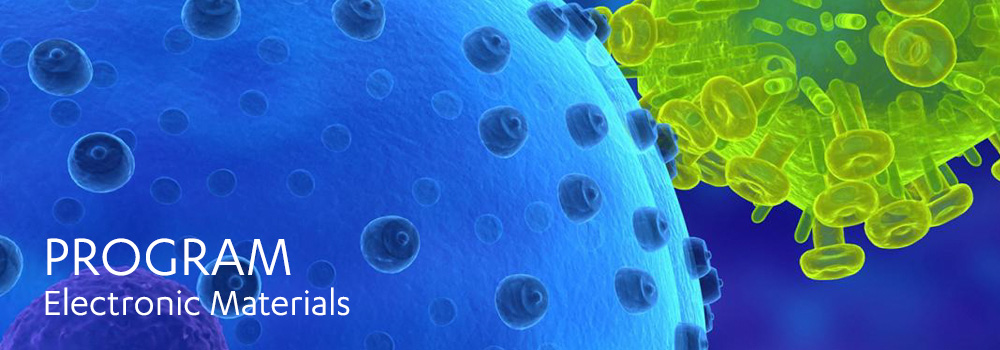
The Electronic Materials program provides a knowledge set that is highly relevant to the semiconductor industry.
Electronic Materials
Degree: Master of Science in Engineering – Electronic Materials
Area Director: Professor Ya-Hong Xie – yhx@ucla.edu
Program Description: The Electronic Materials program provides a knowledge set that is highly relevant to the semiconductor industry. The program has 4 focus areas: theoretical background (120, 221 and 271), applied knowledge (122, 224, 223, and 298), exposure to theoretical approaches (271), and introduction to the emerging field of microelectronics of organic electronics (252). All faculty members have industrial experience prior to joining UCLA and are currently conducting active research in these subject areas.
Degree Requirements: At least nine courses are required (36 Units), of which at least FIVE must be graduate courses at the 200 level (excluding ENGR 299 Capstone Project course), and meet Comprehensive Exam Requirement.
At least 6 of the Courses must be from the MAT SCI Department courses below:
- MAT SCI 120 – Physics of Materials
- MAT SCI 122 – Principles of Electronic Materials Processing
- MAT SCI 221 – Science of Electronic Materials
- MAT SCI 223 – Materials Science of Thin Films
- MAT SCI 224 – Deposition Technologies and Their Applications
- MAT SCI 252 – Organic Polymer Electronic Materials
- MAT SCI 270 – Computer Simulations of Materials
- MAT SCI 298 – Characterization of Electronic Materials
Please visit the Registrar’s webpage for Course Descriptions.
COMPREHENSIVE EXAM REQUIREMENT
Students can meet the Comprehensive Exam Requirement by choosing ONE option below:
Option 1:
Take and Pass ENGR 299 Capstone Project course.
Option 2:
Take and pass three written exams for three different graduate level courses within the student’s area of specialization. The written exams are held concurrently with the final exam of the graduate level courses. Students may select which exams they would like to count towards the Comprehensive Exam requirement.
Electives:
As long as you have met the requirements above, the remaining courses may be selected from other Engineering departments. No approval is necessary. Please note: Students may not apply electives towards earning a certificate. Certificate programs are intended for non-matriculating students and are categorized as separate programs.
Thesis Plan:
NONE
Time-to-Degree:
Students are expected to complete the degree within two academic years and one quarter, including two summer sessions. The maximum time allowed in this program is three academic years (nine quarters), excluding summer sessions.
